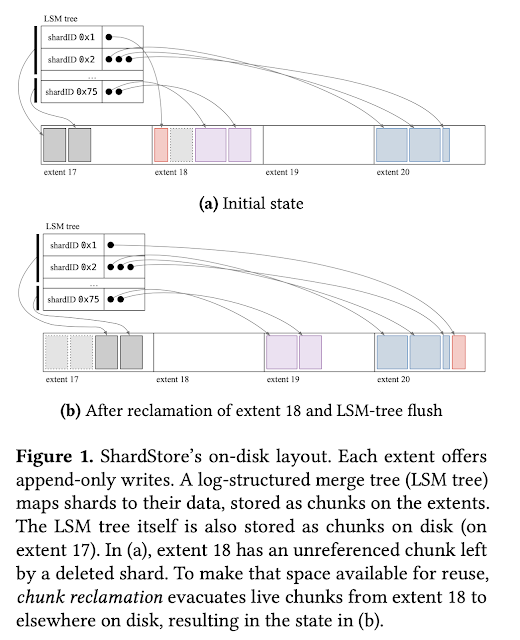Log structured protocols in Delos (SOSP21)

This paper picks up from where the "Virtual Consensus in Delos" paper finishes , and talks about using Delos to build control plane databases at Facebook. These are my notes from Mahesh's excellent conference presentation. These control plane databases at Facebook were required to support multiple APIs: some SQL, some key-value pairs, and some ZooKeeper namespaces. Each such API typically requires a separate database to be built. But implementing and operating even a single zero dependency control plane system is difficult. To cut this dilemma, they observe that these databases have a similar structure: a consensus protocol at the bottom, and a replicated state machine on top. A lot of that state machine uses generic logic that can be reused across different APIs. This implies that there is an hourglass architecture at work here, where Delos platform is the narrow waist. This paper focuses on protocols which allow us to layer multiple apis on this common Delos platform....


